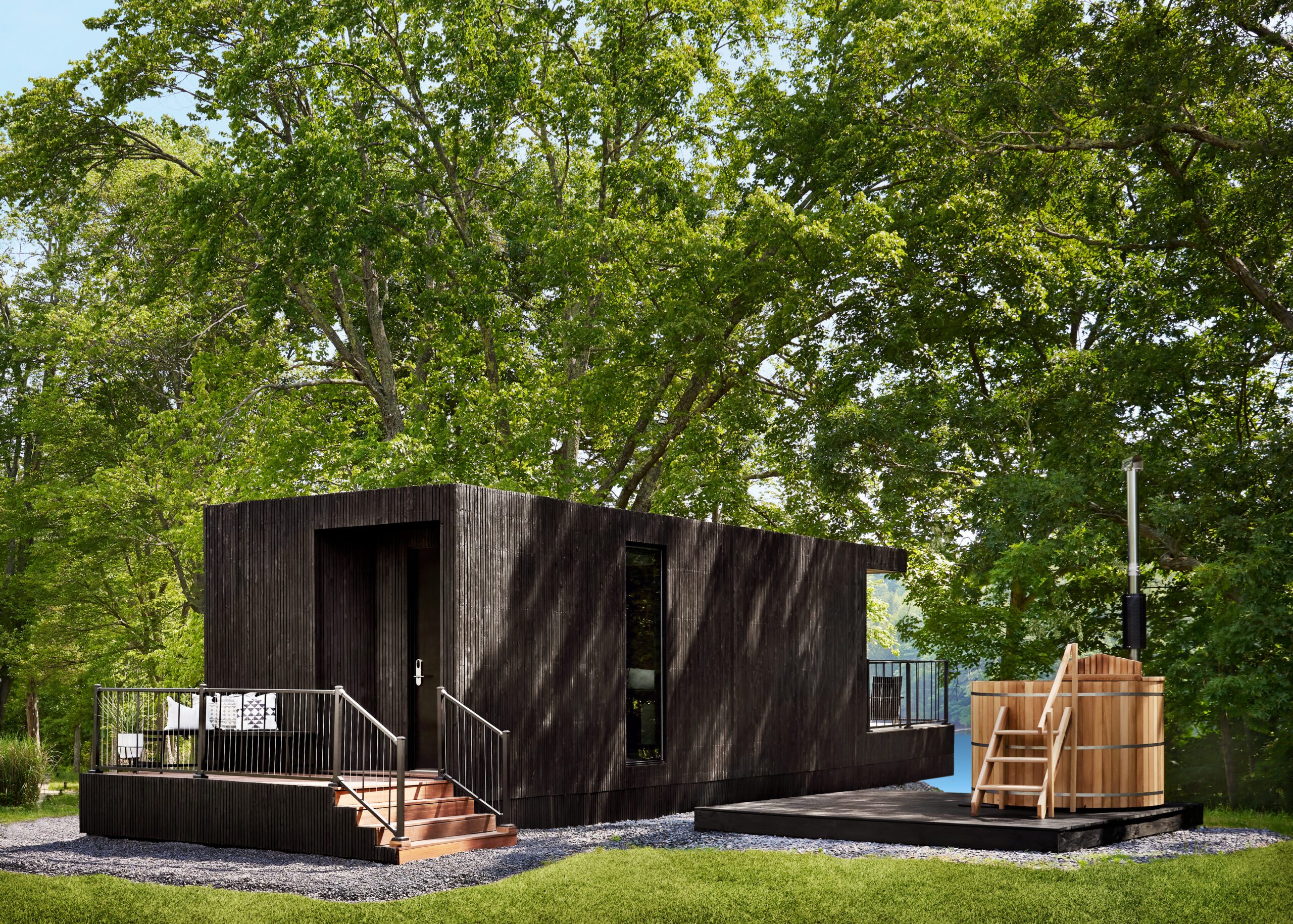Some of the most immaculate travel destinations are beautiful simply because they have not been altered from their natural state, but those types of places are becoming few and far between. One hospitality company wants to democratize access to such extraordinary destinations.
New York-based Moliving is the first in the industry to label itself a “nomadic hospitality solution.” Each of Moliving’s independent, 400-square-foot hotel units can be transported seamlessly to any of their locations.
The idea for Moliving was born when siblings and co-founders Jordan Bem, CEO, and Hanna, CMO and head of the subsidiary The Moliving Collection, were on a beach in the Hamptons. They were talking about how expensive the seasonal hotels were, charging hefty premiums during the few months they are actually open to cover their annual costs.
“We then joked about the idea of creating a hotel that could ‘move’ and always be in the right markets at the right times, hence creating the best-case use of real estate,” Jordan explained to “Authority Magazine.”
That is the uniqueness of Moliving’s business model. The company can forecast seasonal demand, allowing each location that uses its units to shift its inventory levels accurately and consistently operate at full capacity.
For example, units could be sent to a beach in the summer and a snowy ski area in the winter, allowing each to lower fixed costs in their off-seasons and capitalize on heightened demand in their peak seasons — all without the need to build expensive permanent infrastructure.
Photo Courtesy David Mitchell
The whole development process is far more streamlined than for a traditional hotel. These identical units can be constructed in three to five months and opened within one year from the masterplan phase, each at a cost of about $150,000 — two to three times less expensive and shaving years off the timeline. And because the Moliving Collection does the preparation work and provides the operations, all the landowners have to do is enter the joint venture and prepare some minor infrastructure.
By maintaining this control, Jordan said Moliving ensures it always acts as “a hybrid between ultra-luxury and mobility spaces,” capable of offering something the traditional hotel model cannot provide.
Photo Courtesy David Mitchell
Each Moliving Suite, designed by Hanna and architect Steven Chen, comes with a welcoming 120-square-foot front deck and its own tiled and skylit bathroom. The main living space comes with a minibar complete with a mini fridge and coffee maker, clad in a light wood that matches the shelving in the bathroom. A couch sits with clerestory windows high on the white wall behind it, facing the Samsung 55” smart television on the opposite wall, and a desk acts as the headboard to the bed in the next space.
Photos Courtesy David Mitchell
The bedroom is paneled in dark wood, featuring a king bed that can be turned into two twins. Three bay windows at the back of the unit stretch from floor to ceiling. When the electronic shades are not down, they let in plenty of natural light and look out onto another 120-square-foot patio out back where you can relax in Adirondack chairs. And a particularly luxurious add-on: the hot tub located to the side.
Photo Courtesy David Mitchell
The units are built on a chassis with axles so they can be wheeled to each location. With a particularly spacious interior — 45 feet long, 11.9 feet wide, and 12 feet tall — and sporting speakers, plenty of charging outlets and WiFi, and an iPad to control it all, the unit delivers on all fronts.
“Moliving is also in the process of creating a mobile application that will provide an interface for all unit guests to handle all front- and back-of-house lodging functions, from check-in to requests for additional pillows,” the company told “Dezeen.”
Photo Courtesy David Mitchell
Plus, each pod is constructed and operates sustainably, blending into and minimizing impacts on the local environment, using many eco-friendly and recycled materials.
Although the leader of Moliving’s seed round, Brooklyn-based SG Blocks, built the 60 initial units, local factories will create future suites to reduce delivery emissions and contribute to local jobs and culture. When the units are in place and operational, they generate power from solar panels on their roofs, storing it in lithium batteries, allowing them to run self-sufficiently and off-grid.
Each unit has a water holding tank that can recycle, sanitize, and reuse the same water seven times before it needs to be replaced, thus reducing water taken from the local area. And when a joint venture partnership ends without being renewed, and Moliving removes units from the site, it is like they were never there.
“[W]e have the ability to come, install a hotel, and leave without harming the environment, which means that more people can actually visit the world,” Jordan told “Forbes.” Plus, for every reservation, Moliving plants a tree through the nonprofit One Tree Planted.
Photo Courtesy David Mitchell
The first set of units is set to debut at the Hurley House, an “eco-resort” in the Hudson Valley of New York. With no cars permitted on the premises, bikes and electric golf carts will enable guests to get around and take advantage of activities.
However, this is just the beginning. The Hamptons, Lake Tahoe, and Vail are just a few of the picturesque destinations where you may soon be able to stay in a Moliving unit. An online crowdfunding campaign through StartEngine, launched in April, is fueling this growth domestically before an international push.





